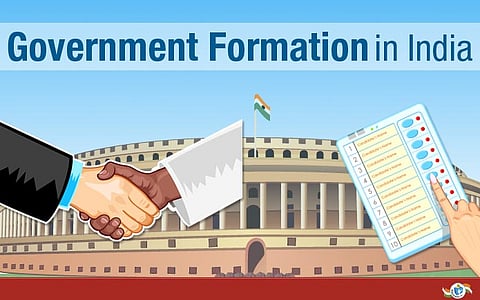
- Home
- Live Blog
- Breaking News
- Top Headlines
- Cities
- NE News
- Sentinel Media
- Sports
- Education
- Jobs

Will the country this time revert to coalition rule, after the 2014 general elections broke a pattern at the Centre that had run for nearly a quarter century? With the ‘TsuNaMo’ of Narendra Modi leaving psephologists fumbling for explanations, observers had then pointed out that in 2009 too, pre-poll surveys had been badly off the mark. The Congress-led UPA had actually received a more emphatic mandate to retain power, while the BJP under LK Advani was left to rue its casual approach to coalition building, which it righted in 2014. Pre-poll surveys for 2019 are now predicting lesser seats for the BJP (not more than 230-240), with the BJP-led NDA projected to go within striking range or barely past the halfway mark of 272 Lok Sabha seats. The BJP leadership has so far taken a headstart in striking deals with existing allies by ceding them more space as with Shiv Sena in Maharashtra, bringing back to the fold estranged allies like AGP in Assam and PMK in Tamil Nadu, settling with Nitish Kumar’s JD(U) and Ram Vilas Paswan’s LJP in Bihar nearly six months back, and finding new allies like AIADMK in Tamil Nadu. On its part, the Congress has recently finalised seat arrangements with tried and tested allies like Laloo Prasad’s RJD in Bihar and Sharad Pawar’s NCP in Maharashtra. However, in bellwether State UP, it is anyone’s guess whether the Congress decision to go it alone will hurt BJP by slicing away a part of its upper caste base, or also hit the powerful SP-BSP combine by attracting a part of its Muslim votes. While the BJP seems to be fancying its chances of setting up a credible presence in West Bengal this time, the Congress is yet to decide between Mamata Banerjee and the Left Front, even as it takes on the latter in Kerala (where the BJP is keen to open its account, as seen in the saffron involvement in Sabarimala temple stir). As for Delhi where the BJP swept all seven LS seats in 2014, the Congress thus far has been utterly reluctant in joining hands with Aam Admi Party. The question is being asked whether the Congress still sees itself as the grand old party to which power is bound to return as the wheel of electoral fortune turns. If indeed this is so, Congress would seek to recover hitherto lost ground (grabbed by interlopers like SP and BSP in UP and AAP in Delhi!) — which means that if the party is actually rebuilding, the 2019 elections may simply be too close for comfort. Unlike the BJP’s initiative to sew up pre-poll alliances, a rebuilding Congress could choose to ride out its luck and strike post-poll alliances if the NDA falls badly short. Pre-poll alliances show voters where the parties stand, though parties need to ensure their workers pull together on ground and votes are efficiently transferred from one party to the other. In case a fractured mandate comes through, post-poll alliances will give the people a government, but such arrangements can make strange bedfellows of parties. With support bought for obscene amounts of money and power the only glue thereafter to hold disparate parties together, governance is vitiated. Whether pre-poll or post-poll, parties that form ruling coalitions need to strike a balance vital for the country’s body politic — to work in unison over reforms and avoid decision paralysis, while being seen as a better guarantee against rash Executive action. In all democracies, deal making (ethical, of course) is an art no political party can afford to ignore.